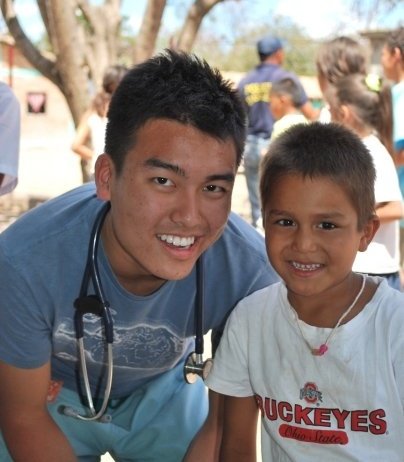



Wayne State MedStart Class of 2010 from YoungKey Chung on Vimeo.
The new policy on pregnant women, aimed at ensuring that babies are born healthy, is in line with the new treatment guidelines issued by the World Health Organization just a day before. Treating infected babies earlier is expected to help South Africa, one of only four countries where child mortality has worsened since 1990, improve the survival odds of its youngest citizens.
The alacrity with which the government adopted the health organization’s advice and extended access to AIDS drugs gives substance to Mr. Zuma’s break with the views of his predecessor, Thabo Mbeki, who during almost a decade in office had questioned whether H.I.V. causes AIDS and suggested that antiretroviral drugs could be harmful.
More people are H.I.V. positive here than in any other nation, and Mr. Zuma called on South Africans to struggle against AIDS as they had against apartheid. “We have no choice but to deploy every effort, mobilize every resource and utilize every skill our nation possesses,” he said.
The policy changes he announced will expand access to treatment. Mr. Zuma said that by April the government would start treating H.I.V.-positive people with tuberculosis earlier, when their immune systems are stronger — a step the World Health Organization said would reduce death rates. Tuberculosis is the leading killer of South Africans with H.I.V., the virus that causes AIDS, and deaths from tuberculosis have more than tripled here since 1997.
“What does this all mean?” Mr. Zuma asked in his address, broadcast on public television. “It means that we will be treating significantly larger numbers of H.I.V.-positive patients. It means that people will live longer and more fulfilling lives.”
Mr. Zuma’s emergence as the first South African president to seize center stage on AIDS comes with its own subplots. Just three years ago, he admitted while on trial for rape that he knowingly had had sex with a woman infected with H.I.V. without using a condom, saying he showered afterward to minimize his risk of infection. Though acquitted, his words became fodder for cartoonists and critics.
That tarnished personal record served as a backdrop to his speech Tuesday, as he rallied his fellow South Africans to learn their H.I.V. status, promised to get another H.I.V. test himself and urged the nation to “use condoms consistently and correctly during every sexual encounter.”
Harvard researchers estimated last year that the delay by Mr. Mbeki’s government in using antiretroviral drugs to prevent women from infecting their newborns earlier this decade led to the deaths of 35,000 babies, and that 330,000 people died prematurely for lack of treatment.
Despite Mr. Zuma’s break with Mr. Mbeki on AIDS, he has apparently rejected a rising public clamor here, even among some of his party’s allies, for an accounting of Mr. Mbeki’s culpability.
The Congress of South African Trade Unions said Monday that Mr. Mbeki should apologize to the nation for his failures in fighting an epidemic it has described as “destroying more lives than any invading army in history.” The Young Communist League has demanded that Mr. Mbeki be prosecuted for genocide.
Business Day, a newspaper, editorialized on Nov. 20 that a murder trial and cross-examination of witnesses offered the possibility of extracting some truth. “The prospect of having a bite at understanding the Mbeki madness beckons,” the paper wrote, “even if legal charges might not ultimately stick.”
Mr. Mbeki, asked in a rare interview with the newspaper The Sunday Independent published on Nov. 1 if he had any regrets about his nine years as president, made no mention of AIDS.
Mr. Zuma and his party clearly have no desire to open an inquiry into the government’s record on AIDS. Mr. Zuma was Mr. Mbeki’s deputy president until Mr. Mbeki fired him in 2005. And like virtually all the leaders of the African National Congress, Mr. Zuma did not publicly oppose Mr. Mbeki on AIDS.
In an article published Tuesday in The Star, a daily newspaper, Mr. Zuma defended the government’s record and said that under past presidents from his party, specifically mentioning Mr. Mbeki, the government had put in place “strategies to comprehensively deal with H.I.V./AIDS.” He argued that as the government seeks to do still more, “We should avoid being drawn into an agenda of blame and recrimination.”
Still, Mr. Zuma’s approach on Tuesday — to speak frankly to the nation about each individual’s responsibility to prevent the spread of AIDS by changing his or her sexual behavior and to lay out new policies on life-saving treatment — won him wide praise from the advocates who had despaired under Mr. Mbeki.
In another significant vote of confidence, Donald Gips, the American ambassador to South Africa, announced that the United States would give South Africa $120 million over the coming two years to help meet the growing demand for antiretroviral drugs. That comes on top of the $560 million the United States was already planning to give South Africa in the 2010 fiscal year to fight AIDS.
But South Africans may best remember Mr. Zuma’s speech for his embrace of those who have suffered because of the epidemic or been shunned by society and their families. Among those listening Tuesday at the Pretoria show grounds was the daughter of Gugu Dlamini, a woman stoned and stabbed to death in 1998 near Durban after she said on the radio that she was H.I.V. positive.
While Mr. Mbeki once said he had never known anyone who died of AIDS, Mr. Zuma offered his sympathy.
“To families looking after sick relatives, we wish you strength,” he said. “We understand what you are going through. To those who have lost their loved ones to the epidemic, we share your pain and extend our deepest condolences.”
